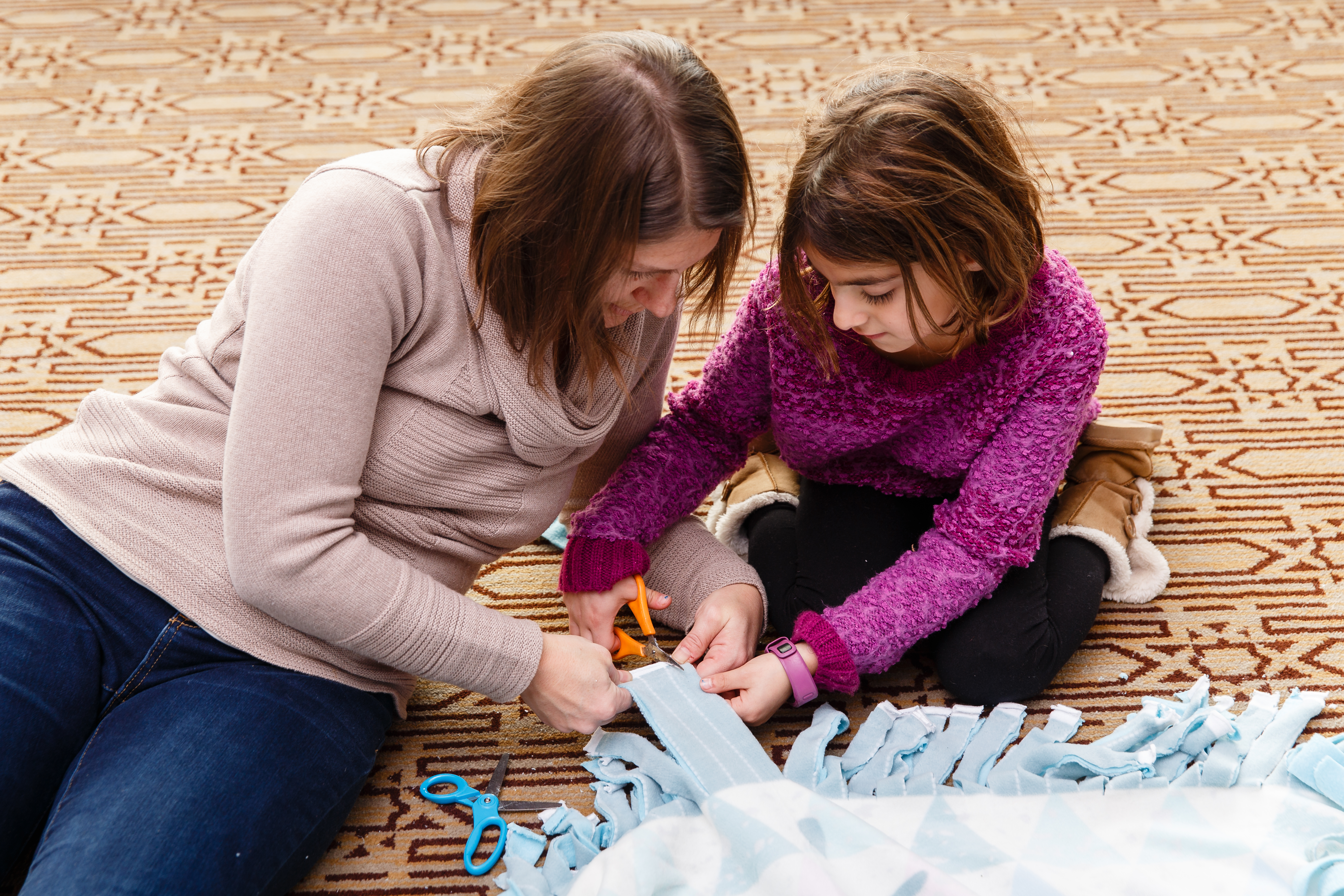Jewish experts offer advice on home schooling, talking to kids and building resilience
Even in times of calm, the art of parenting is a challenge. But in this moment of public health crisis, it’s fraught with a whole new level of uncertainty — and a new form of forced closeness. “A lot of us are spending a lot more time with our kids,” says Meredith Lewis, Director of Content, Education and Family Experience at PJ Library. “We have to parent and work, and grocery shop and clean, and we can’t just go out and take a walk to clear my head. Anxiety is rising.”
Meredith was part of a recent virtual panel of experts including David Bryfman, CEO of the Jewish Education Project, and Jeremy Fingerman, CEO of Foundation for Jewish Camp, who came together for a lively discussion on parenting in a pandemic. Here, some of their advice for this moment in time.
Scale back your own expectations. Throw away your idealized home-schooling schedule of limited screen time, family fitness hour and any other regimented, hard-to-reach goals. You’ll only disappoint and exhaust yourself at a time when you need to be building up your own resilience — both for your sake, and your children’s. “What do you need to keep yourself going?’” says Meredith. “Sleep, eat, listen to your emotions.” And keep a pace that’s sustainable for the longer term.
Talk to your kids in a developmentally appropriate way. The future holds difficult conversations around money, illness and death; answer their questions honestly, giving them only as much information as they need. Let them process and then return to the discussion as often as they like. A few tips:
- Kids’ questions will come. Think about your answers so you aren’t blindsided.
- Kids understand much more than you may imagine. Minimize conversations you wouldn’t want them overhearing. Try not to have the news on.
- Our feelings aren’t the same as our children’s, and it’s important not to project our own fears on them. “Even with teenagers, it’s important to understand that in the absence of their peer group, you’re not their peer, you’re a parent,” says Meredith.
Academics are secondary right now. “Educators are doing heroic work” by pivoting the classroom experience to a virtual one at a moment’s notice, says David Bryfman. That said, the most important part of your kids’ education right now is a different type of learning: “It’s about connection, relationships and identity. Hebrew schools are trying to provide opportunities to engage in meaningful experiences,” less about transmitting knowledge and more about giving kids a stable foundation to help them get through this moment in time.
Recognize your kids’ feelings of loss. “They’re missing graduation ceremonies, bar and bat mitzvahs, end of year dances,” says David. “These are major milestones that we as a society have determined are important, and we should honor that by allowing them to be upset about it.” That goes double for teenagers, he adds: “Gen Z, this is the generation of FOMO and YOLO.” Additional tips:
- Don’t minimize a child’s experience by trying to put it in perspective. “The last thing you should tell a teenager is ‘When you grow up, you’ll look back on this as character-building’ or ‘When I was young...’”
- Create other rites of passage to help mark those important moments and create stability. Just as we creatively adapted Seder this year, your teen’s bar or bat mitzvah may look different than planned. Your kindergartener’s “graduation” or birthday will be celebrated differently. Collaborate and figure out what that new configuration will look like, in a way that’s meaningful and joyful. Your children will remember having been “seen,” included and valued.
For more Jewish Federation resources on COVID-19, click here.



